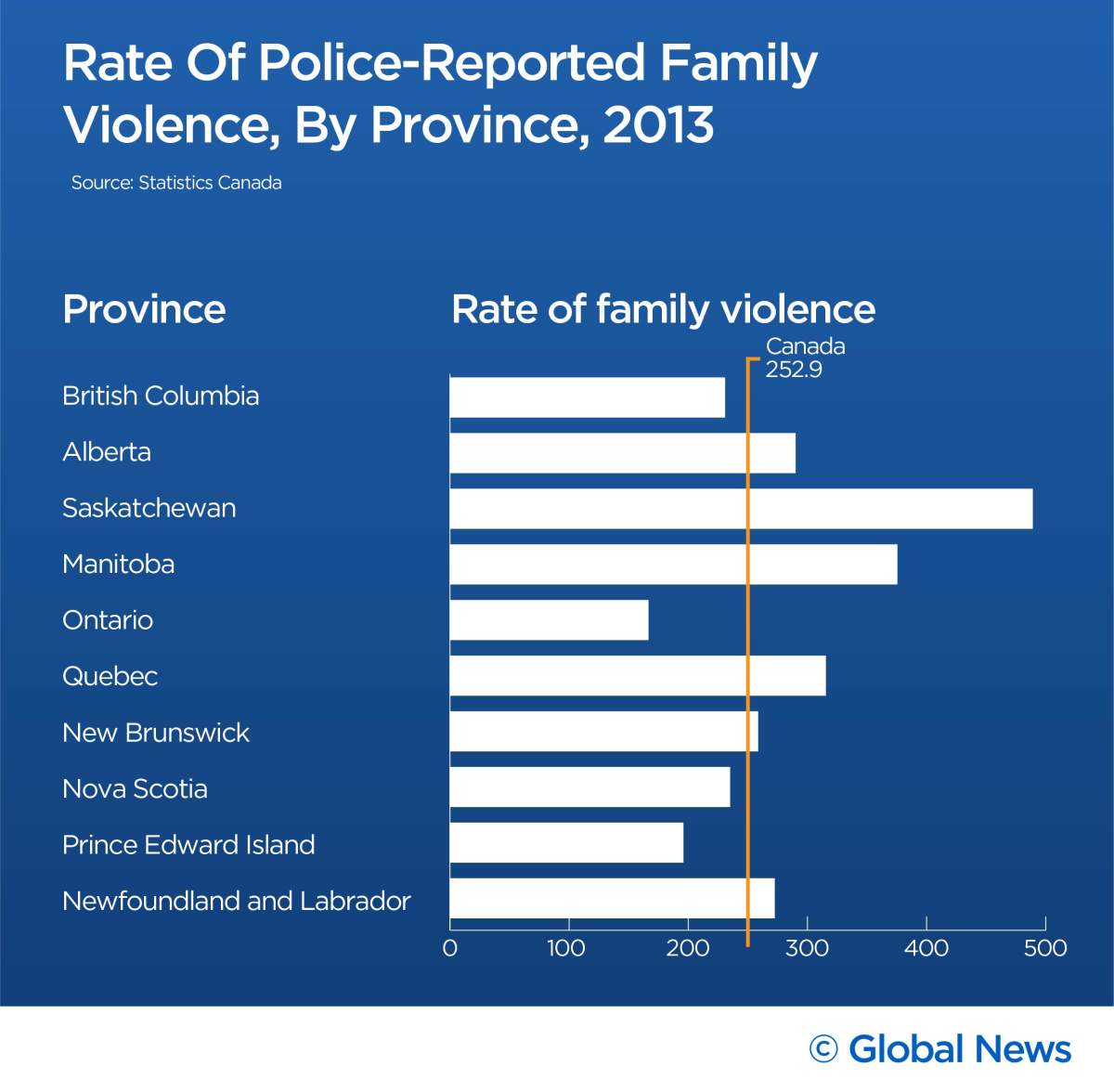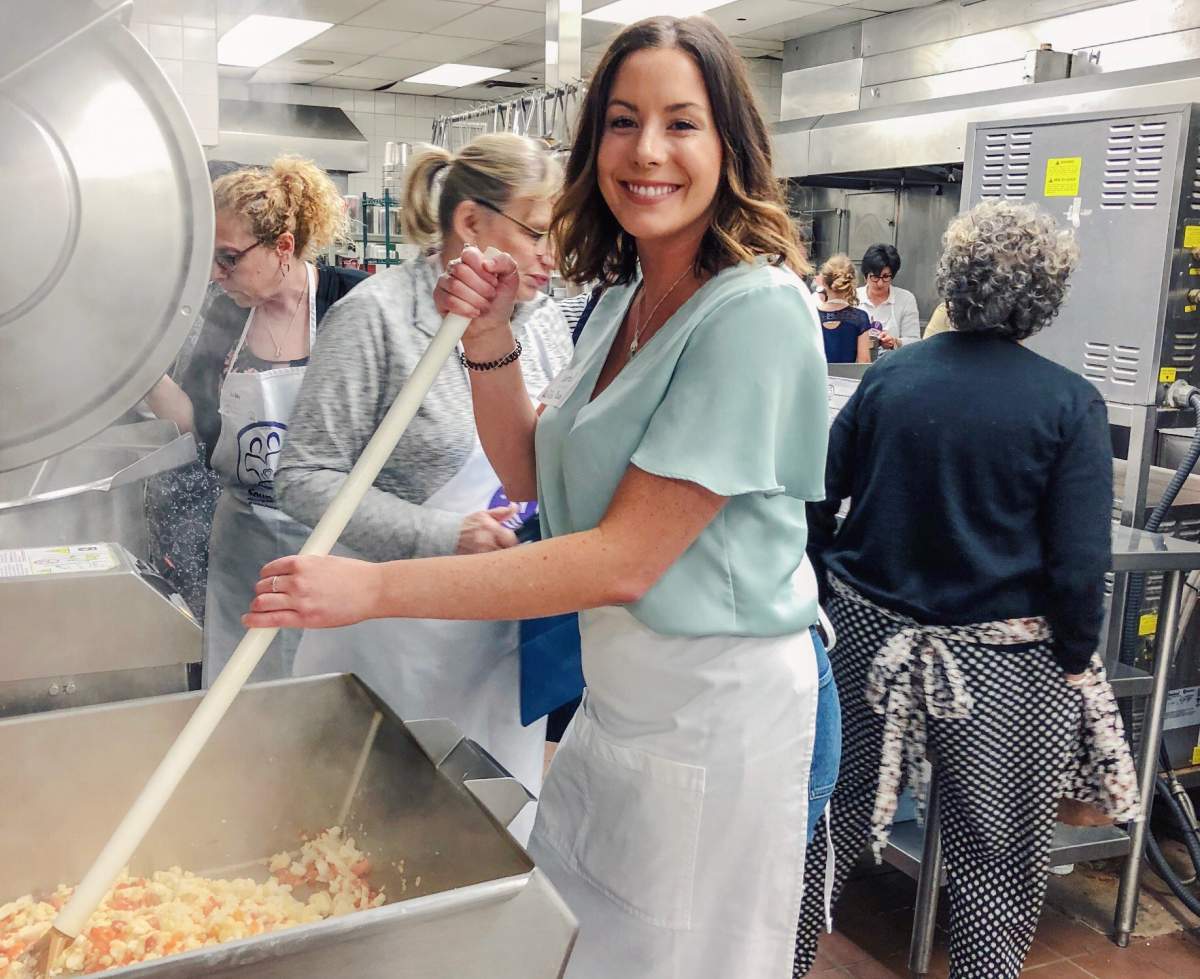This is part two of a series about overcoming abuse. Here’s part one and part three.

Leaving family violence can be extremely difficult, but signing the wrong papers can make the process a lot worse.
That’s the message feminist lawyer Pamela Cross hopes Canadians will remember before making any agreements with a former partner. Cross suggests survivors seek advice from a lawyer — one who isn’t helping a former partner and who specializes in family violence or violence against women.
“I find it very troubling when I talk to women who have signed away things … that are their rights because they have been persuaded by their abusive partner to give up on one thing in order to maybe get another,” Cross said.
“You don’t have to give up your share of the value of the family home. You don’t have to give up a decent level of child support or spousal support if you’ve been a stay-at-home mom to get custody of your children.”
READ MORE: Getting divorced? Battles over ‘custody’ could be a thing of the past with divorce reforms
When someone is leaving an abusive relationship, the abuser may try to do anything to get their way, which means they may not always tell the truth, Cross said.
“There’s no reason to think that he won’t then turn around and still fight her over custody of the children because he’s into a different game, he’s into the game of power into control,” Cross said. “He’s not really thinking about what’s in the best interests of the children.”
WATCH: How people of all genders can find support

What if you can’t afford legal help?
If survivors need a lawyer but don’t have funds, there are still options, Cross said. Family law is largely regulated by provinces and territories so each one works differently when it comes to legal assistance.
Here’s a list of legal aid services that can be utilized in each Canadian province and territory:
– British Columbia
– Alberta
– Saskatchewan
– Manitoba
– Ontario
– Quebec
– New Brunswick
– Prince Edward Island
– Nova Scotia
– Newfoundland and Labrador
– Nunavut* (see end of article)
– Northwest Territories
– Yukon
There are more government-based family justice services here.
READ MORE: Overcoming abuse: How to support and respect survivors of family violence
Most acts of family violence are crimes in Canada. The Criminal Code includes a number of special provisions that protect survivors, according to the Department of Justice. When charges relating to family violence have been laid, criminal courts have a wide range of powers to release or detain an accused person.
Deciding whether or not to leave family violence
Cross wants people who are debating whether to stay or leave violence to talk to family, friends, police, or whoever they think is going to know what’s best for them.
For some people, reporting what’s happened to them to police and then becoming involved in the criminal process works well, but Cross acknowledges that’s not true for everyone.
“Sometimes it’s safer to stay, even for a while, as you gather your resources, put some counselling in place for you and the children, find somewhere to live, and start to think about what those next steps might be,” she said.
“For others, it’s important to get out right away because the situation is so dangerous.”
The federal Department of Justice recommends telling police about abuse because crown prosecutors and spousal abuse policies can help ensure family violence is treated safely and seriously.
The government suggests people ask themselves these questions, as a starting point, when trying to make a decision about whether to stay or leave for a short time or permanently:

Get daily National news
- Has the person who abused you ever threatened to kill you or the children?
- Have they used sexual violence against you, such as forcing you to have sex?
- Have they threatened or tried to commit suicide?
- Are they very controlling or very jealous?
- Do they refuse to accept the possibility of separation?
- Have they stalked you before?
- Do they take drugs or drink too much?
- Have they been involved with criminal activity?
- Have they been violent toward your children?
- Have they sexually abused your children?
- Have they ever used a weapon like a knife or a stick to hurt you or your children?
- Have they ever been violent toward other people?
- Have they been violent toward your pets?
- Are you afraid for your children?
- Are you afraid of leaving?
- Are your friends or family members afraid for you?
- Do you feel powerless or very anxious?
When creating a plan to leave, survivors are advised to save small amounts of money, keep it hidden for times of need, and memorize the phone number of police and shelters. Planning where to go next, how to get there, who to call for help, and what to take along can also be helpful, if possible.
What to pack if leaving
- Proof of identity, such as a Social Insurance Number, birth certificate, health card and driver’s licence
- Cash, debit cards, credit cards, cheque-books and bank statements
- Important phone numbers and addresses of close friends, family members or community resources
- Cell phone
- Medicines
Restraining orders/protection orders are an option
Cross believes restraining orders or protection orders are an important piece of the legal procedure for survivors of family violence, although they may not always work.
“A restraining order or a protection order can be helpful,” Cross said. These are orders from the family court that prohibit the other person from having any contact, direct or indirect contact, with the person who got the order.
“When a woman has one, she needs to be prepared to enforce it, which means that if her partner violates the restraining order, she needs to be willing to call the police on him and that’s hard for a lot of women. … A restraining order is of no use at all if there aren’t steps taken when the person violates it.”
Although it’s an order from the court, these orders are ultimately just a piece of paper and persistent abusers may not care about it, Cross said. That can be dangerous.
WATCH: Domestic violence: when the law isn’t enough
Shelters for survivors of domestic violence
On any given night in Canada, more than 6,000 women and children stay in shelters because it’s not safe for them at home, according to the Canadian Women’s Foundation (CWF).
“Our shelters in Canada are a critical resource and escape,” said Paulette Senior of the CWF.
Shelters are usually open 24 hours and can help survivors of violence come up with a plan to figure out their next steps for safety, Senior said. Many accept children and pets too, but if possible, Senior suggests calling and checking first.
READ MORE: Helping women and their pets escape abusive relationships
“It’s important to know where the shelters are,” Senior said. Resources such as this map can help survivors find shelters offering a safe place to stay, counselling and referrals. Searching online for nearby shelters while covering your tracks, then deleting the search history can also be helpful.
“If a shelter is full, they will help you find another.”
Senior wants Canadians to know they don’t have to be living in a shelter to utilize the supports offered there. She said the YWCA is one example of a multi-services organization that offers services to people, no matter where they are staying. Charities such as the YMCA, the Salvation Army and homeless shelters may also connect people with a place to stay.
Senior has previous experience managing organizations with shelters and believes these services need to be well-funded and supported by the government. She also said it’s up to organizations that work with shelters to make sure they’re responding and working with requests for help.
WATCH: Why more support is needed for the LGBT2SQ+ community

When it comes to support services for survivors of violence, Senior said one of the most vulnerable populations is represented by trans women.
“Trans women experience significant barriers in terms of being able to access services when they’re in a violent situation.”
When shelters started to develop around 35 years ago in Canada, they were focused mainly on one gender: women, Senior said. “We have trans women who are in need of significant services, … so shelters are transforming.”
Volunteering at shelters
Chantal Lacoste has been volunteering at a women’s shelter in Winnipeg, Willow Place, for more than a year and also speaks on behalf of Soup Sisters, which helps create food for the shelter. At one point, she created a necklace with her mom and her grandma to raise funds for Willow Place.
PHOTO GALLERY: Shelter volunteer wears necklace she created with family to support survivors
“We need to realize that there are people that care,” Lacoste said. She believes in giving back to organizations that help vulnerable people. “It takes time, it takes effort, but the effort is worth it.”
Lacoste encourages survivors of family violence to seek help and healing through methods such as counselling, which shelters can set up.
“Being vulnerable … it’s how we connect with others and as difficult as it might be, sometimes that might be the point where you’re able to cross into talking to somebody that might help you,” Lacoste said.
“Once you do speak out about your experiences, that is extremely helpful and it is part of healing, it is part of your journey.”
*The Nunavut Legal Services Board may be contacted at:
Maliiganik Tukisiiniakvik
P.O. Box 29
Iqaluit NU X0A 0H0
General Line (toll free) 1-866-202-5593
Poverty Line (toll-free) 1-866-677-4726
Keewatin Legal Services Centre
P.O. Box 420
Rankin Inlet NU X0C 0G0
Family Line (toll-free) 1-866-606-9400
Kitikmeot Law Centre
P.O. Box 96
Cambridge Bay NU X0B 0C0
General Line (toll-free) 1-866-240-4006
If you need help immediately, call 911. If you are hurt, go to the nearest hospital.
Resources
Connect with someone at Crisis Services Canada toll-free at 1-833-456-4566 any time, or text 45645. Here is another list of crisis hotlines you can call.
Kids can text CONNECT to 686868 and reach a crisis responder at Kids Help Phone.
Talk4Healing is a fully confidential helpline for Indigenous women available in 14 languages. Call 1-855-554-HEAL.
Here’s more information about services for abused men.
Newcomers to Canada, you can find free services near you here.
This government resource includes family violence supports, along with a list of resource options.
This booklet was put together by survivors of family violence and can help you create a safety plan.
To learn more about family violence and recovery for offenders, here are more government resources.
Find your nearest Canadian Mental Health Association location or learn more about well-being supports across Canada here.













Comments
Want to discuss? Please read our Commenting Policy first.